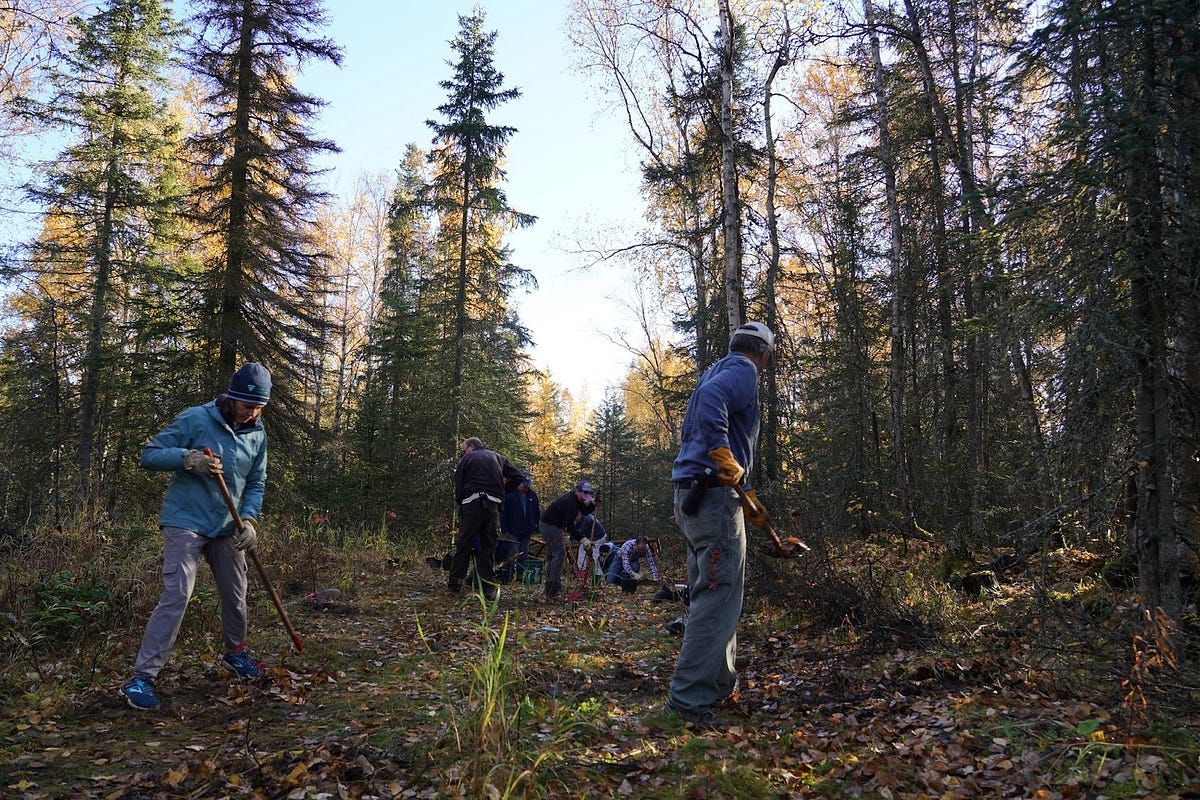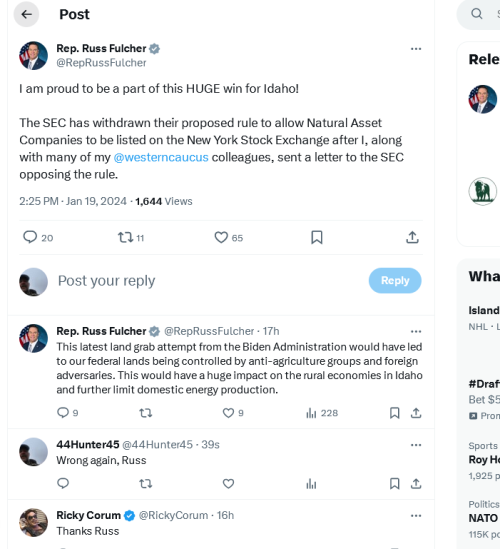44hunter45
Well-known member
Yes. I know there is a paywall. I was able to read the whole article.
Educational. I got enough from it that I want to learn more about it. There is a lot to digest in this.
Hopefully this thread won't turn into a lock in 5.

 medium.com
medium.com
Educational. I got enough from it that I want to learn more about it. There is a lot to digest in this.
Hopefully this thread won't turn into a lock in 5.
Conservation opponents have a new boogeyman: Natural Asset Companies
Never let the facts get in the way of the monster under your bed
 medium.com
medium.com





